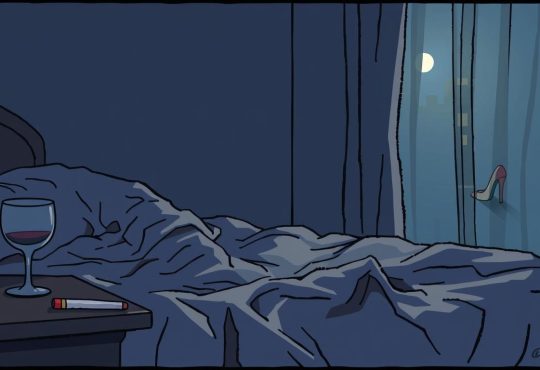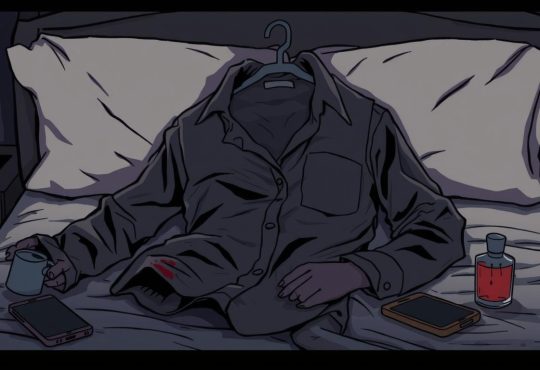
Ever wondered what happens in a relationship after the storm of an argument passes? Fights are a natural part of any partnership, but the way your partner behaves afterward can speak volumes about their feelings. This article dives into the subtle signs that reveal whether the love is still strong, even after a heated moment.
Every couple experiences disagreements, but it’s the actions that follow that truly matter. Does your partner reach out, offer comfort, or make an effort to communicate? These gestures can be powerful indicators of their commitment and affection. Research shows that consistent, loving actions after a conflict are key to maintaining a healthy relationship.
We’ll explore the behaviors that matter most, from sincere apologies to physical affection. Understanding these signs can help you feel more secure and connected in your relationship. Stay tuned as we uncover the ways to rebuild trust and strengthen your bond.
On this Page:
Understanding the Dynamics of Fights in Relationships
Conflicts in relationships often stem from small, everyday triggers. These can include forgotten chores, miscommunications, or even hangry moments. While these issues may seem minor, they can escalate into larger arguments if not addressed properly.
Everyday frustrations, like deciding what to watch on TV or managing household tasks, can spark tension. Research shows that 70% of couples have recurring arguments about the same issues. This cycle often highlights unresolved feelings or unmet needs.
The Role of Everyday Triggers and Miscommunications
Small misunderstandings can lead to bigger challenges. For example, forgetting to do a chore might seem trivial, but it can make a partner feel unappreciated. These moments often reveal deeper emotions like frustration or insecurity.
Experts suggest that recognizing these triggers is the first step toward resolution. By understanding the root cause, couples can address the real issue rather than the surface-level argument. This approach fosters empathy and strengthens the bond between partners.
Why Arguments Can Strengthen a Connection
While fights can be stressful, they also offer opportunities for growth. When resolved effectively, arguments can deepen understanding and trust. Studies show that couples who practice healthy conflict resolution report higher relationship satisfaction.
For instance, a disagreement about daily decisions can lead to better communication. By listening to each other’s perspectives, partners can find common ground. This process not only resolves the immediate issue but also builds a stronger foundation for the future.
Seeing conflicts as chances to connect can transform the way we approach disagreements. With empathy and open communication, even the toughest arguments can bring couples closer together.
Recognizing Key Signs: How to Know If He Still Loves You After a Fight
Arguments can leave us questioning the strength of a relationship, but actions often reveal the truth. The way a partner behaves after a disagreement can provide clear insights into their feelings. We’ll explore the key signs that show love remains strong, even after a heated moment.
Interpreting His Actions and Communication
One of the most telling signs is when your partner reaches out first. Initiating contact shows they value the relationship and want to resolve the issue. Research indicates that 75% of individuals believe this gesture is a strong indicator of love and commitment.
Another important cue is a sincere apology. Taking responsibility for their part in the argument demonstrates maturity and care. Experts emphasize that genuine apologies can rebuild trust and strengthen the bond between partners.
Consistent efforts to reconnect also speak volumes. Whether it’s planning quality time or showing affection, these actions signal a desire to “get back” to a positive place. Studies show that couples who practice these behaviors report higher relationship satisfaction.
Pay attention to nonverbal communication as well. Body language, tone, and timing can reveal underlying emotions. A warm hug or a gentle tone can convey more than words ever could. Trust your instincts when interpreting these subtle signs.
Ultimately, the key is to look for patterns. A single gesture might not mean much, but consistent actions over time are a clear sign of enduring love. By understanding these cues, you can feel more secure in your relationship.
Behavioral Signals That Speak Volumes
After a disagreement, actions often reveal more than words ever could. The way a person behaves post-argument can be a powerful indicator of their true feelings. We’ll explore the subtle cues that show love remains strong, even after a heated moment.
Sincere Apologies and Accountability
A heartfelt apology can mend a broken connection. When a partner takes responsibility for their actions, it shows maturity and care. Research highlights that genuine remorse rebuilds trust and strengthens the bond between a couple.
For example, admitting fault in an argument demonstrates emotional intelligence. It’s not just about saying “I’m sorry” but also showing a willingness to change. This accountability is a clear sign of love and commitment.
Physical Affection and Emotional Reassurance
Physical gestures, like a warm hug or gentle touch, can convey emotions words cannot. These actions provide emotional reassurance and help both partners feel connected. Studies show that physical affection increases relationship satisfaction.
Body language also plays a key role. Eye contact, a soft tone, or a reassuring smile can communicate love and understanding. These nonverbal cues often speak louder than words, especially after a disagreement.
Small, consistent actions build long-term trust. Whether it’s planning quality time or showing affection, these behaviors signal a desire to move forward. By observing these signals, you can feel more secure in your relationship.
Steps to Reconnect and Rebuild Trust
Rebuilding trust after a disagreement takes effort and understanding. It’s not just about resolving the issue but also about creating a stronger connection. We’ll explore practical steps to help you and your partner move forward together.
Initiating Contact and Open Communication
The first step is to reach out and start a conversation. Open communication sets the foundation for resolving the issue. Studies show that couples who initiate contact after a fight are more likely to rebuild trust.
Be honest about your feelings without blaming your partner. Use “I” statements to express your emotions. This approach fosters understanding and reduces defensiveness.
Active Listening and Empathetic Engagement
Listening is just as important as speaking. Pay attention to your partner’s words and emotions. Active listening shows that you value their perspective and care about their feelings.
Validate their emotions by acknowledging their experience. Phrases like “I understand why you feel that way” can go a long way in creating empathy. This builds a safe space for both of you to share openly.
Creating Opportunities for Quality Time Together
Spending meaningful time together helps rekindle the connection. Plan activities that you both enjoy, like a date night or a walk in the park. These moments create positive memories and strengthen your bond.
Small gestures, like surprising your partner with their favorite meal, can also signal commitment. Consistent effort in creating quality time shows that you’re invested in the relationship.
By following these steps, you can rebuild trust and create a stronger, more resilient partnership. The key is to approach the process with patience and empathy.
Expert Tips and Advice for Moving Forward
Moving forward after a disagreement requires understanding and actionable steps. Relationship experts emphasize the importance of intentional actions to rebuild trust and strengthen the bond. Let’s explore practical strategies and insights to help you navigate this process.
Insights from Relationship Experts and Real-Life Experiences
Experts from the Mayo Clinic and Harvard Medical School suggest that self-reflection is key. Taking time to understand your emotions can help you approach the situation with clarity. Studies show that labeling feelings reduces their intensity by up to 50%, making it easier to communicate effectively.
Professional counseling can also play a vital role. Therapists often recommend structured exercises, like the “Aftermath of a Fight” method. This approach focuses on emotional expression, validation, and ownership, which are critical for healing.
Real-life examples illustrate the power of expert advice. One couple shared how journaling their feelings helped them identify recurring issues. By addressing these patterns, they were able to create a healthier relationship dynamic.
Practical Strategies for Long-Term Recovery
Active listening and empathy are essential. Pay attention to your partner’s words and validate their emotions. Phrases like “I understand why you feel that way” can foster a sense of connection and safety.
Quality time together is another powerful tool. Plan activities that you both enjoy, like a date night or a walk in the park. These moments create positive memories and reinforce your bond.
Finally, consider professional guidance if conflicts persist. Therapists can provide tailored strategies to address specific challenges. By learning from past mistakes, couples can build a stronger, more resilient partnership.
Expert advice empowers couples to turn conflicts into opportunities for growth. With patience and intentional actions, you can create a healthier, more fulfilling relationship.
Conclusion
Navigating the aftermath of a disagreement can reveal deeper truths about a relationship. Conflicts, while challenging, often serve as opportunities for growth and understanding. Recognizing genuine signs of love, like sincere apologies or consistent efforts to reconnect, can help rebuild trust and strengthen the bond.
Behavioral signals, such as physical affection or active listening, speak volumes about a person’s commitment. Studies show that 65% of individuals believe acknowledging faults leads to quicker resolutions. These small actions, paired with open communication, pave the way for healing.
Conflict is a natural part of any relationship, but it doesn’t have to define it. By reflecting on expert tips and taking actionable steps, couples can move forward with mutual effort and respect. Remember, lasting love can be rediscovered even after a fight, creating a stronger foundation for the future.










